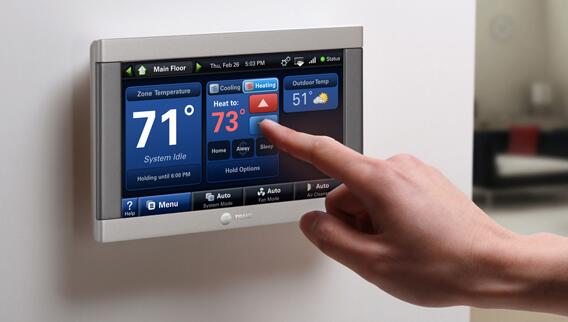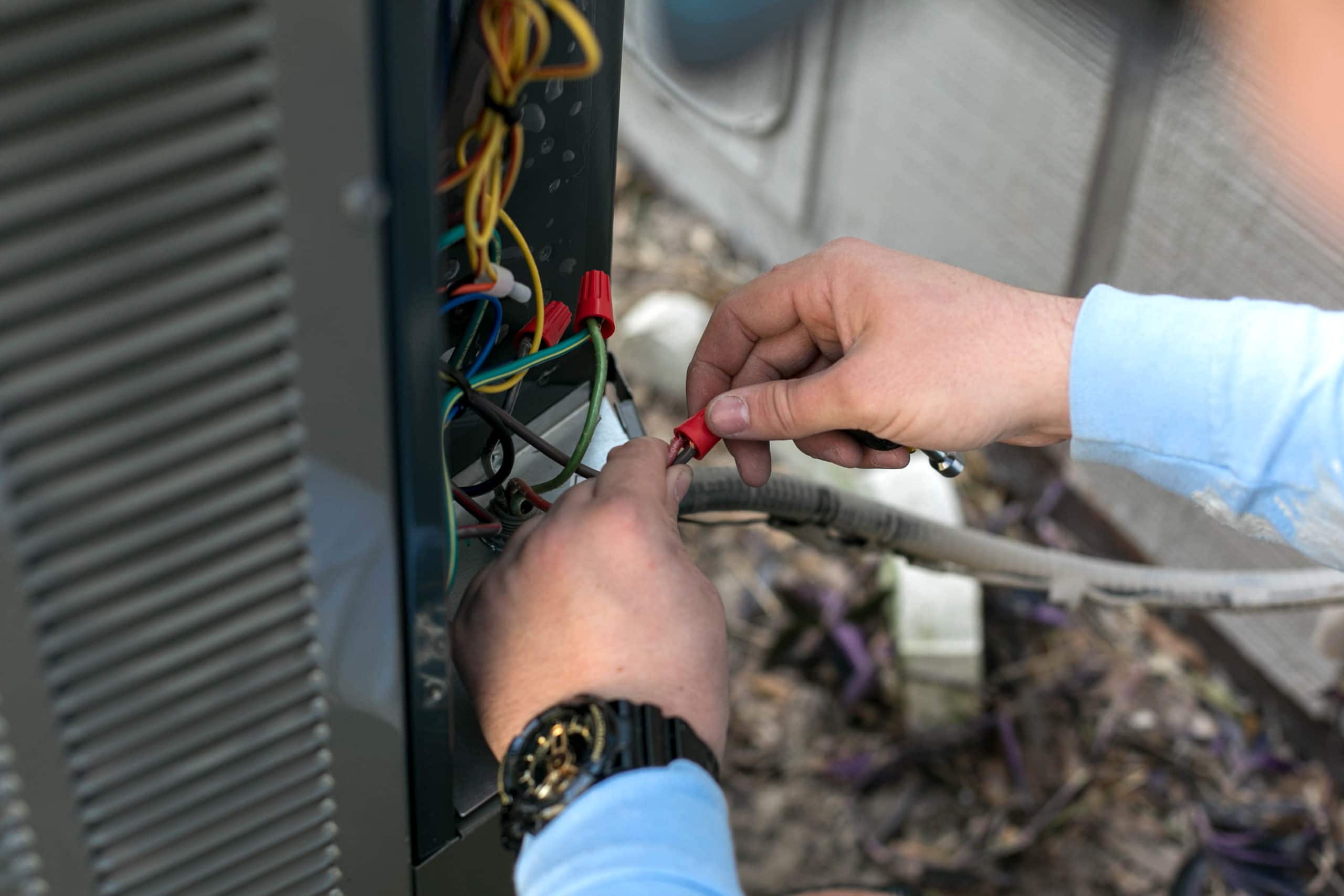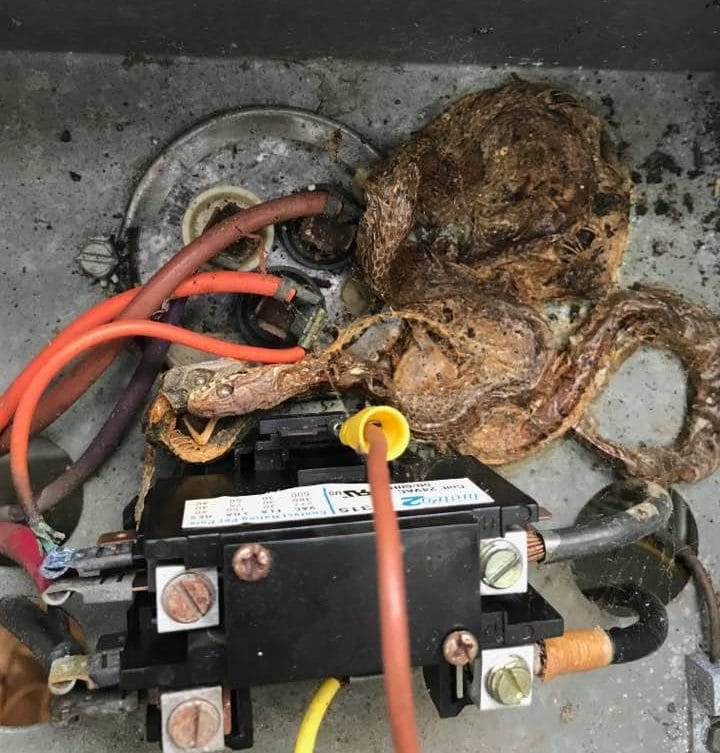Have you ever walked outside, breathed in the crisp morning air, and wondered why the air outdoors can seemingly be so much cleaner than that in your house? While we often hear about the dangers of outdoor pollution, the threats building up inside our homes tend to get far less attention. According to the EPA, air pollutants inside homes can be up to 2 to 5 times higher than outdoors, regardless of whether you live in an industrial city or even a rural area.Â
Treating the indoor air quality of your home is incredibly important for the health of your family. But, knowing how to detect the quality of your home’s air and effectively improve it can be challenging. In this article, we’ll break down the threats of poor indoor air quality and provide you with a clear path to breathing easier, knowing that the ones you love are safe in your home.
How Harmful is Poor Air Quality?
When it comes to your home, we know that your family’s health and safety is paramount. Of course, the air we breathe directly impacts our health. Poor air quality can exacerbate existing health conditions and lead to new illnesses and diseases. Some air pollution effects manifest quickly, including irritation of the eyes, nose, and throat, and the onset of headaches and fatigue. Air pollutants can also aggravate existing conditions, such as asthma and other respiratory diseases. With years of exposure, dangerous health effects can take hold, including new respiratory diseases, heart diseases, and cancer.
The effects of coming into consistent contact and living with poor indoor air quality vary greatly from person to person. Further, air quality can impact your household’s health in quick, noticeable ways, or it can gradually contribute to new or worsening conditions years after exposure. So, taking preventative measures to combat poor indoor air quality, learn effective practices, and invest in cleaner air equipment is crucial.
Sources of Indoor Air Pollutants
In reality, there are many particles in our indoor air, and we often do not even realize which of our everyday household tasks put them there. Some of our most basic chores cause emissions, and while most of the effusions are non-toxic, the air inside the enclosed spaces of homes can easily build up harmful pollutants. Therefore, purifying the indoor air inside your home should start with preventative practices and comprehensively cleansing the air.
What Causes Indoor Air Pollutants?
Our daily routines can leave harmful toxins and pollutants trailing in the air behind us. Fumes from simple activities such as cooking on a gas stove or warming a room with a fireplace can emit and disburse dangerous toxins into the air, including carbon monoxide, nitrogen dioxide, and harmful airborne particles.Â
The products you choose to use throughout your home can also contribute to poor indoor air quality. From what you use to build and furnish your home to what you use to clean it for the years to come, these choices can be the root cause of polluted air. Sources include:Â
- Disintegrating insulation containing asbestosÂ
- New flooring, upholstery, or carpet
- Paints
- Cabinetry or furniture constructed with pressed wood products
- Household cleaning and maintenance products
- Personal care products and sprays
- Aerosol sprays Â
While combustion sources tend to be the most significant indoor pollution sources alongside what homeowners choose to put into their homes, the air inside also naturally accumulates potentially pathogenic airborne microorganisms, fungi, and mold.
There are dozens of contributors to poor indoor air quality, but many of these sources stem from some sort of humidity or water. In houses, humidity is a constant concern. If there is too much, homes turn into breeding grounds for bacteria and fungi, especially mold. Conversely, if there is too little, the dry air could cause eye and respiratory irritation. Finding a comfortable medium with your humidity levels is just one of the many important reasons to have a properly working air conditioning system that will help moderate your home’s moisture.
Another cause of built-up pollutants is poor ventilation. Ensuring that your house is adequately ventilated is paramount for producing clean air. Stagnant air, much like stagnant water, is a breeding ground for mold and other bacteria to collect. Especially in houses that are well insulated, it can be difficult to keep air moving throughout, so healthy air conditioning systems significantly assist in circulating fresh air.
What Can We Do About Indoor Air Pollutants?
While we’re discussing something that you often can’t even see, treating indoor air quality isn’t a guessing game. Below we outline some of the best ways you can improve the indoor air quality of your home.
AC Maintenance
Scheduling routine maintenance for your air conditioner is key to cleaner indoor air. During AC maintenance with Gator Air & Energy, we take critical steps to ensure that your air conditioning unit is functioning optimally. We also clean the essential components of the system that can otherwise build up harmful substances. For example, an effective way to rid your air conditioning system of mold is by cleaning the condenser and evaporator coils. Dirty coils can create mold throughout the system by causing water buildup.Â
AC Filters
Overall, one of the best ways to get rid of most pollutants in the house is to replace your air conditioning unit’s filter. This is a simple task that only needs to be done roughly four times per year. To change the filter, all you have to do is measure the filter’s size, often written around the edge of the filter, then pick up a new filter at your local hardware store, and replace the old with the new. Filtration best serves as a supplement to proper ventilation and air conditioning practices.Â
Air Purification
Air purifiers serve to clean the air in an enclosed space by removing airborne particles and substances while also sanitizing the air. These systems can effectively filter pollutants and allergens like pollen, dust, smoke, toxins from the rooms in your home.Â
Air purifiers are also best used alongside fundamental air quality practices like air conditioning, ventilation, and source control. While air purifiers can substantially improve air quality, to remove all pollutants from your home’s air supply, you’ll need to use these methods in conjunction with each other.Â
UV Light Purification
Adding a UV light to your home’s HVAC system will serve to eliminate harmful airborne microorganisms, including mold, mildew, fungi, bacteria, and viruses. As a simple upgrade to your system, these lights offer a powerful tool to destroy or nullify almost all of the air pollutants that circulate through it. Â
Switch to Greener Household Products
There are also natural remedies for cleaner air that support these initiatives. For example, to eliminate the toxins emitted by household cleaners, we recommend using more natural or organic cleaning solutions, as these generally have healthier ingredients. Of course, the cleaner you keep your house, the cleaner the air should be.
Trust Gator Air & Energy for Clean Indoor Air
Clean air is invaluable for your family’s health and safety, but it can be challenging to achieve without maintaining your heating and cooling equipment and following best practices. Be proactive in the move toward cleaner air by replacing your filters, scheduling AC maintenance, and investing in clean air technologies, as these are just a few effective ways to ensure a healthy home for you and your family.
View our page on air quality to learn more about what you can do to keep your home safe, and for more information on Gator Air and Energy’s indoor air quality services and to have our experts help make your house a healthier home, call us at (352) 389-4396.Â









